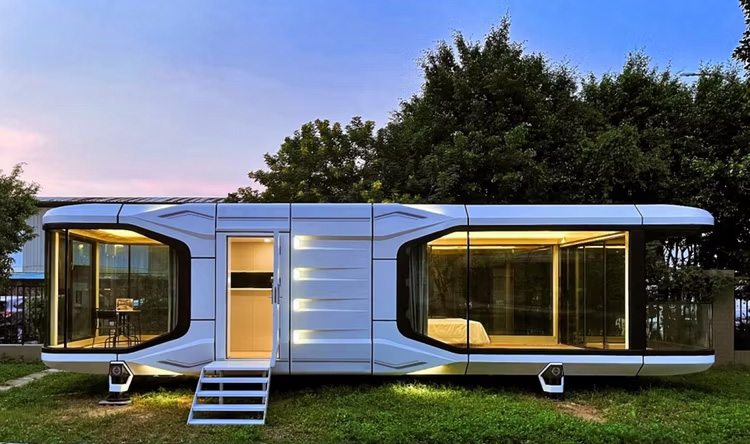Mobile Homes: Practical Living Solutions for Modern Lifestyles
This guide explores mobile homes as flexible, affordable, and modern housing solutions. It covers mobile homes for sale, rental options, modern designs, and mobile home communities. The article explains the types of mobile homes, including single-wide and double-wide, construction techniques, and customization options offered by mobile home builders. Tips for buying or renting include budget planning, evaluating community amenities, and assessing long-term value. Future trends, such as energy-efficient designs, smart home features, and modular expansions, are also discussed. Mobile homes provide accessible, versatile, and convenient living options for a wide range of residents.
Mobile homes are becoming an increasingly popular housing option in the U.S., offering affordability, mobility, and community living. They are fully functional residences that provide an alternative to traditional housing, making them suitable for a wide range of residents, including families, retirees, and professionals.
With growing interest in mobile homes for sale and mobile homes for rent near urban areas, understanding different types, communities, and purchasing considerations is essential. Mobile homes allow homeowners to enjoy privacy while benefiting from shared amenities and organized layouts.
Understanding Mobile Home Types
1. Single-Wide Mobile Homes
Single-wide homes are narrow, efficient in space usage, and typically more affordable. They are easy to transport and can fit smaller plots of land, with prices ranging from $40,000 to $70,000 depending on size and location.
2. Double-Wide Mobile Homes
Double-wide homes provide additional living space and resemble traditional houses in layout. They offer comfort for families and can include modern appliances and larger rooms. Prices generally fall in the range of $70,000 to $120,000.
3. Modern Mobile Homes
Modern mobile homes integrate eco-friendly materials, smart home technology, and energy-efficient appliances. Open layouts, optimized storage, and contemporary design make them a practical and stylish choice for residents.
Construction and Durability
Mobile home builders utilize specialized construction techniques to ensure homes are durable, safe, and compliant with building standards. Key features include:
- Modular structures for easy customization and expansion
- Weather-resistant and transport-ready materials
- Energy-efficient designs to reduce long-term maintenance costs
These features ensure that mobile homes remain a reliable and long-lasting housing solution.
Buying vs. Renting
Buying a Mobile Home
Purchasing a mobile home for sale provides long-term stability and the opportunity to personalize your living space. Buyers can choose plots in mobile home communities or private land. Typical costs range from $50,000 to $120,000, influenced by home size, location, and included amenities.
Renting a Mobile Home
Renting provides flexibility for individuals who may not be ready to purchase. Mobile homes for rent near urban centers often cost $800 to $2,000 per month, depending on size, community facilities, and proximity to schools and workplaces.
Mobile Home Communities
Living in a mobile home community offers both convenience and social interaction. Common amenities include:
- Shared green spaces and recreational areas
- Clubhouses and event spaces
- Security services and property maintenance
- Proximity to shopping, schools, and public transport
Community living combines privacy with a sense of belonging and shared infrastructure.
Interior Design and Decoration
Optimizing space is key in mobile home design. Suggestions for decorating mobile homes include:
- Multi-functional furniture for compact spaces
- Using light colors and mirrors to create an open feeling
- Efficient kitchen and bedroom storage solutions
- Personal touches through art, lighting, and textiles
Modern mobile homes can balance comfort, style, and functionality without requiring large areas.
Tips for Purchasing a Mobile Home
- Establish a budget and understand expected monthly expenses.
- Visit various mobile home communities to compare features.
- Check the reputation and certifications of mobile home builders.
- Consider the location and proximity to daily necessities.
- Evaluate potential resale value and long-term investment benefits.
Purchasing near your desired area enhances convenience and reduces moving challenges.
Future Trends in Mobile Housing
Mobile homes are evolving with several emerging trends:
- Eco-friendly and energy-efficient building materials
- Smart home integration and automated systems
- Modular and expandable layouts for growing households
- Increased community-focused designs with shared amenities
These trends reflect a shift in housing preferences toward flexibility, affordability, and sustainable living.
Conclusion
Mobile homes are practical, flexible, and cost-effective housing options for a wide spectrum of residents. Whether exploring affordable mobile homes, modern mobile homes, or rental solutions, understanding construction, community amenities, and customization options is essential. Mobile home builders provide reliable solutions for finding an ideal home that combines comfort, modern design, and economic efficiency. Mobile homes continue to offer accessible, versatile, and convenient living experiences for individuals and families alike.
